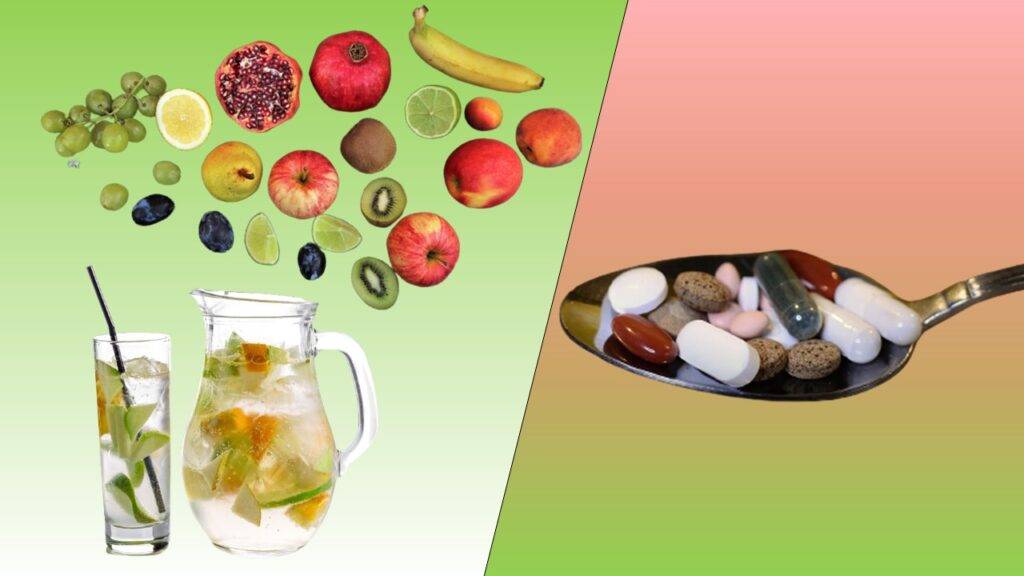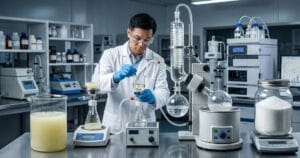
People have long touted antioxidant vitamins for their health benefits. They believe that these vitamins protect our cells from oxidative stress, reduce the risk of chronic diseases, and even slow down the ageing process. However, recent research has raised concerns about the potential dangers of antioxidant vitamins overdose, particularly in cancer. This article delves into antioxidant vitamins and tumour promotion and offers insights into a balanced diet.
The Role of Antioxidants
Antioxidants are compounds that help neutralize harmful molecules called free radicals. Free radicals can damage cells, DNA, and other essential biological molecules, potentially leading to diseases like cancer. Antioxidants play a crucial role in maintaining our health by scavenging these free radicals and preventing or minimizing the damage they cause.
There are several vitamins including vitamin C (ascorbic acid) and vitamin E (tocopherol) which are known for their antioxidant properties. These vitamins exist in a variety of foods and are also available as supplements. Many people turn to supplements to boost their antioxidant intake, believing it will provide added protection against diseases.
While antioxidants are essential for maintaining health, research suggests that excessive intake, especially through supplements, can have unintended consequences. Some studies have linked excessive antioxidant vitamins to a higher risk of tumours and cancer. Researchers often refer to this phenomenon as the “tumour promotion paradox“.
Overdose of Antioxidant Vitamins
A recent study has found that antioxidants may stimulate tumour angiogenesis, a process that can contribute to the growth and spread of cancer. The study, conducted by researchers at the Karolinska Institutet in Sweden, found that antioxidants such as vitamin C and N-acetylcysteine (NAC) can stimulate BACH1-dependent tumour angiogenesis. This means that these antioxidants can promote the growth of blood vessels that supply tumours with the nutrients they need to grow and spread.
While this may sound alarming, keep in mind that researchers conducted the study in a lab, not on humans. Also, not all antioxidants are the same; some affect tumour angiogenesis differently. So what does this mean for you? Should you stop taking antioxidant supplements or avoid eating foods that are high in antioxidants? Not necessarily. Antioxidants are still an essential part of a healthy diet, and there is no evidence to suggest that they are harmful in moderation.
However, it’s essential to be aware of the potential risks associated with excessive antioxidant intake. Particularly if you have a history of cancer or are at high risk for developing cancer. If you are concerned about your antioxidant intake, talk to your doctor/dietitian to know the best course of action.
However, the finding that antioxidants can stimulate tumour angiogenesis could have implications for cancer treatment and prevention. Further research would be needed to determine how this information could be used to develop new cancer therapies.
Why Do Antioxidants Promote Tumors?
The precise mechanisms behind how antioxidants might promote tumour growth are not fully understood, but several theories exist:
- Stimulate Tumour Angiogenesis: Overdose of antioxidant vitamins can promote the growth of blood vessels within a tumour. Angiogenesis is the formation of new blood vessels from existing ones, and it plays a crucial role in supplying oxygen and nutrients to tissues, including cancerous ones.
- Interference with Cancer Cell Death: Some antioxidants may interfere with the natural process of apoptosis, or programmed cell death, which helps remove damaged or cancerous cells from the body.
- Protection of Cancer Cells: Antioxidants may inadvertently protect cancer cells from the body’s immune system or the effects of cancer treatments, allowing them to thrive.
- Pro-Oxidant Effects: In certain circumstances, antioxidants can act as pro-oxidants, generating free radicals that may promote DNA damage and encourage tumour formation.
Balancing Antioxidant Intake
Higher amounts of antioxidant vitamins are well reported for a higher risk of tumours in the laboratory. Therefore, maintaining a balanced approach to antioxidant intake is crucial. Here are some key points to keep in mind:
- Dietary Sources: Get your antioxidants primarily from a well-rounded, plant-based diet rich in fruits, vegetables, whole grains, and nuts. These foods provide a wide array of antioxidants and other beneficial compounds.
- Moderate Supplementation: If you choose to take antioxidant supplements, do so under the guidance of a healthcare professional and avoid excessive doses.
- Individual Needs: Antioxidant requirements can vary from person to person. Factors like age, gender, and overall health can influence your specific needs.
- Lifestyle Choices: Adopt a healthy lifestyle, including regular exercise, avoiding smoking and excessive alcohol consumption, and managing stress to reduce your risk of cancer.
Conclusion
Antioxidant vitamins protect cells, but it’s crucial to control intake. Overdose of antioxidant vitamins supplementation may lead to unintended consequences, including the promotion of tumour growth. The best way is a varied diet and a healthy lifestyle. Consult a healthcare professional before changing your diet or supplements to match your health needs.

